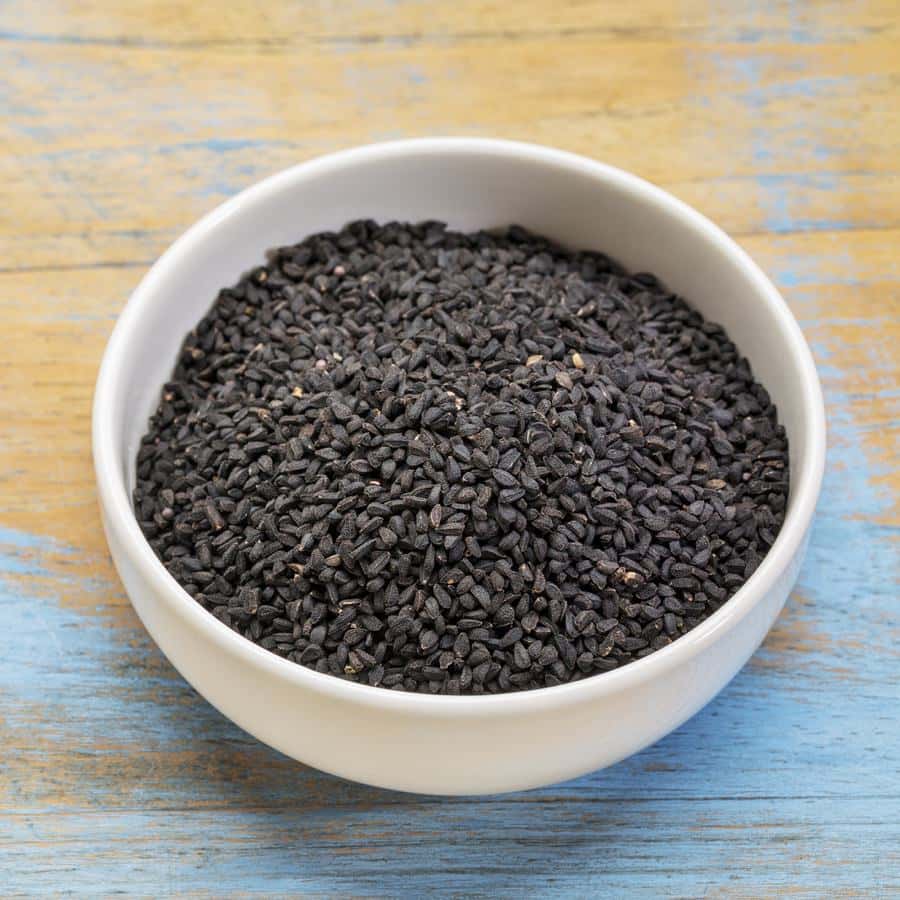
As Americans grow disenchanted with pharmaceuticals, they have become interested in botanical medicines. Many of these come from different medical traditions. Scientists may not have devoted much time to studying them. Yet there are many claims being made for herbs and spices online. One reader wondered about blackseed oil. This is derived from a plant also known as black cumin (though it isn’t actually cumin at all). Some studies have found benefits, but scientists have given it less attention than many other spices.
Can Black Cumin Lower Blood Sugar?
Q. I recently read a research article that tested various herbal products on blood sugar. I’d like to know more about this, especially about black cumin.
A. Black cumin is a common term for a spice identified by its botanical name Nigella sativa. A double-blind, placebo-controlled randomized clinical trial compared ginger, cinnamon and black cumin to placebo (cornstarch). Each of the spices improved several measures of metabolism (Nutrients, May 29, 2024). The study included 120 people with metabolic syndrome (high blood sugar, high cholesterol, high blood pressure, large waist). After three months, people taking ginger or blackseed had lower fasting blood glucose, HbA1c (a measure of blood sugar over time) and cholesterol than those on placebo. The spices had differing effects on these measures, however. Those on cinnamon saw no change in cholesterol but a greater drop in HbA1c than those on blackseed.
There has been far more research on the benefits and possible pitfalls of cinnamon to moderate blood sugar (Journal of Medicinal Food, Sep. 2024). This systematic review concluded that cinnamon’s effect is modest, but positive, with a low risk of adverse reactions.
What Is Blackseed Oil?
Many readers have heard only hints about blackseed oil and its possible benefits.
Q. Can you tell me anything about blackseed oil? Is it safe?
A. Blackseed oil comes from so-called black cumin seeds. They are the seeds of the Nigella sativa plant of southeast Asia and are used to impart a distinctive flavor to certain dishes popular in India or the Middle East.
Nigella sativa contains the compound thymoquinone. In preclinical experiments, this natural chemical shows promise for slowing tumor growth and making certain cancers more vulnerable to treatment (Frontiers in Pharmacology, June 12, 2017). That would certainly warrant attention, if it holds up in human studies. Some scientists are excited about its potential for treating certain cancers (Pharmacognosy Reviews, July 2013). Breast cancer and colorectal cancer might respond well (BMC Complementary Medicine and Therapies, March 26, 2024).
With many of the mechanisms understood, it may be time to devote serious attention to thymoquinone as an anti-cancer agent (Critical Reviews in Food Science and Nutrition, Dec. 12, 2017). Blackseed oil also curbs inflammation and helps modulate the immune system ( Journal of Physiology and Pharmacology, Dec. 2016).
Safety of Blackseed Oil:
Before any plant-derived medicine can be used clinically, scientists must evaluate its safety. Animal studies suggest that thymoquinone helps protect organs from drug-induced toxicity (Al-Rasheed et al, Pharmacological Reports, online May 6, 2017; El-Sheikh, Morsy & Hamouda, Pharmacognosy Magazine, Jan. 2016, supplement). That suggests that it doesn’t cause serious health problems. We haven’t seen any clinical studies in people showing that it is safe. However, a comprehensive review did not raise any red flags (Nutrients, May 24, 2021).
Learn More:
You can learn more about the effects of cinnamon and other spices on blood sugar in our eGuide to Preventing & Treating Diabetes. In addition, you could read about other medicinal uses of spices in our book, Spice Up Your Health: How Everyday Kitchen Herbs & Spices Can Lengthen & Strengthen Your Life.
Citations
- Al Dhaheri AS et al, "The effect of therapeutic doses of culinary spices in metabolic syndrome: A randomized controlled trial." Nutrients, May 29, 2024. DOI: 10.3390/nu16111685
- Bakhach H et al, "A systematic review evaluating cinnamon's effects on glucose utilizing a ranking system to assess bias and study quality." Journal of Medicinal Food, Sep. 2024. DOI: 10.1089/jmf.2023.0277
- Mostofa AGM et al, "Thymoquinone as a Potential Adjuvant Therapy for Cancer Treatment: Evidence from Preclinical Studies." Frontiers in Pharmacology, June 12, 2017. DOI: 10.3389/fphar.2017.00295
- Abukhader MM, "Thymoquinone in the clinical treatment of cancer: Fact or fiction?" Pharmacognosy Reviews, July 2013. DOI: 10.4103/0973-7847.120509
- Moulana MS et al, "Tumoricidal properties of thymoquinone on human colorectal adenocarcinoma cells via the modulation of autophagy." BMC Complementary Medicine and Therapies, March 26, 2024. DOI: 10.1186/s12906-024-04432-2
- Majdalawieh AF et al, "Anti-cancer properties and mechanisms of action of thymoquinone, the major active ingredient of Nigella sativa." Critical Reviews in Food Science and Nutrition, Dec. 12, 2017. DOI: 10.1080/10408398.2016.1277971
- Dajani EZ et al, "Overview of the preclinical pharmacological properties of Nigella sativa (black seeds): a complementary drug with historical and clinical significance." Journal of Physiology and Pharmacology, Dec. 2016.
- Hannan MA et al, "Black cumin (Nigella sativa L.): A comprehensive review on phytochemistry, health benefits, molecular pharmacology, and safety." Nutrients, May 24, 2021. DOI: 10.3390/nu13061784

